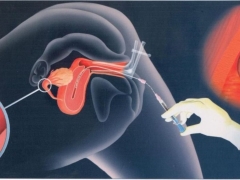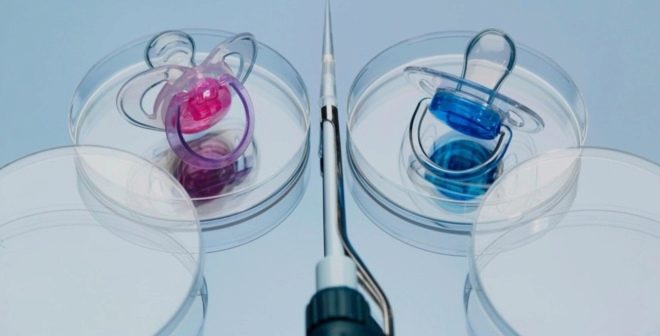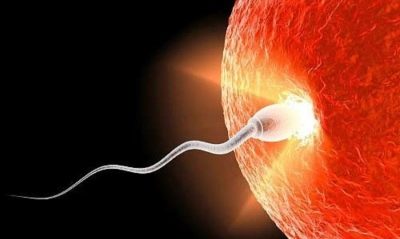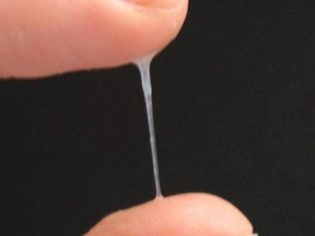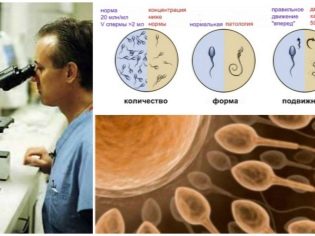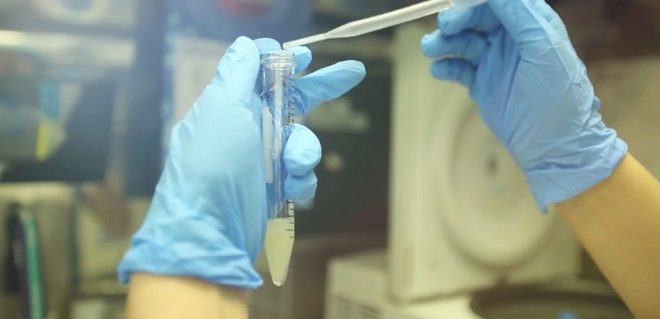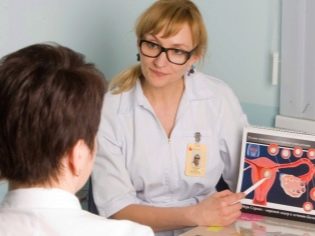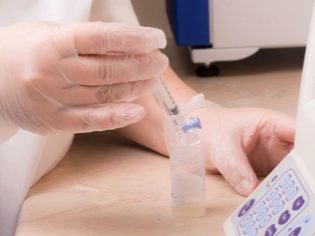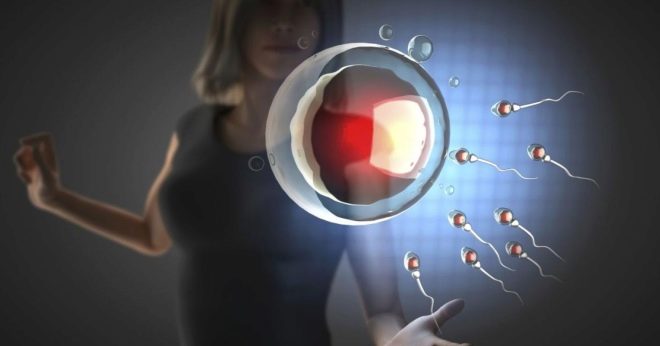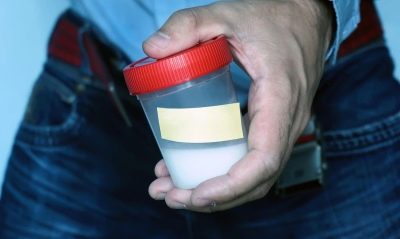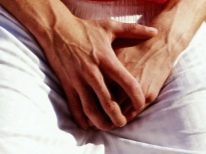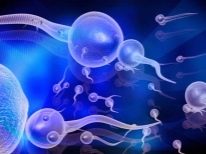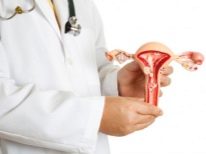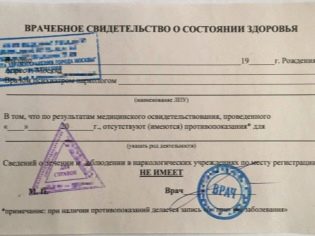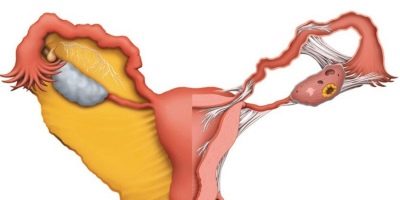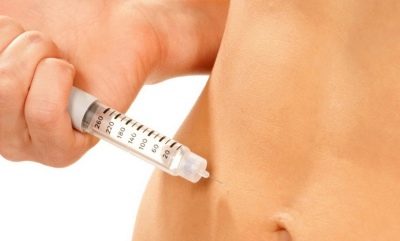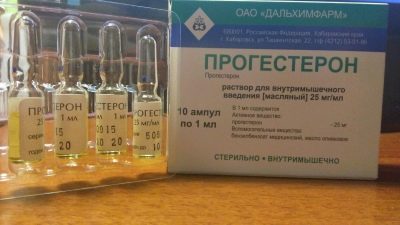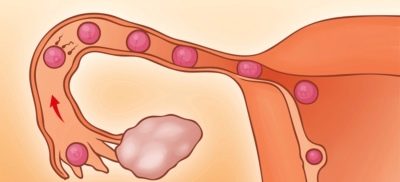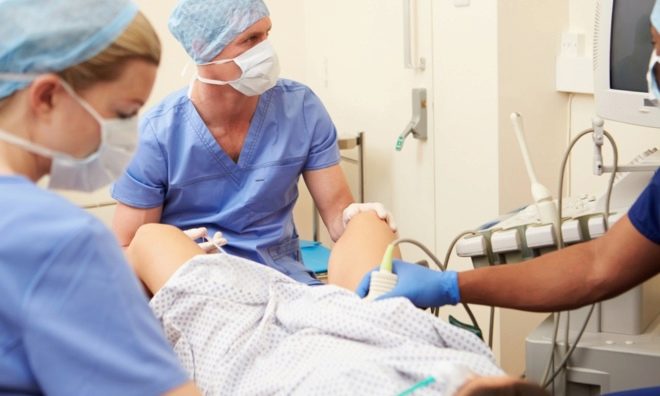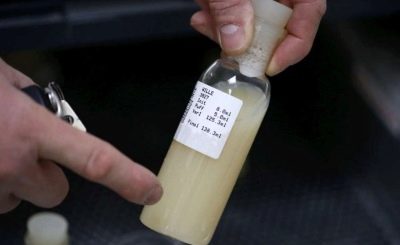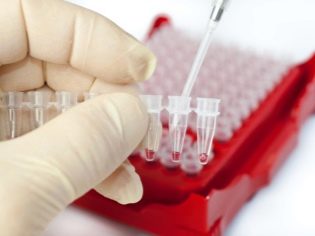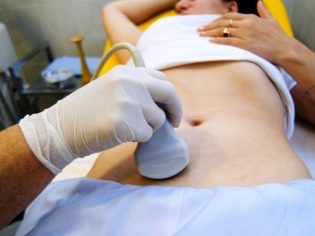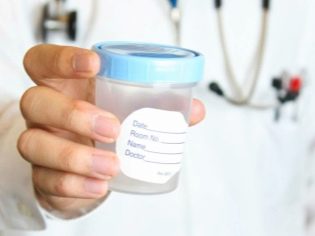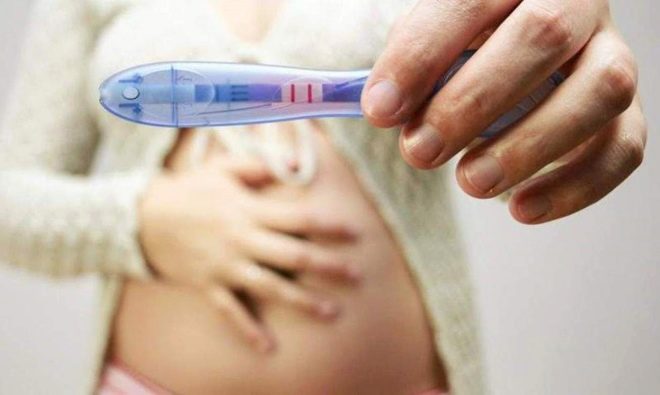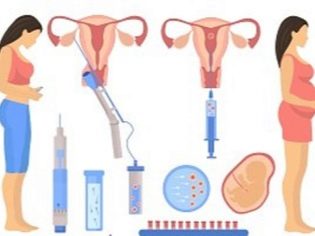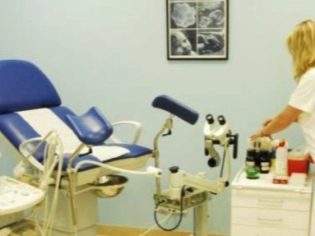What is intrauterine insemination and how is the procedure performed?
Since 2003, intrauterine insemination has been used in Russia to combat some forms of infertility. This method of treatment offers many clinics, both public and private. What is it and how the procedure is carried out - will be discussed in this article.
What it is?
Insemination is called insemination, the purpose of which is to fertilize a woman without direct sexual contact. Natural fertilization occurs after the sperm of her partner enters the female genital tract. Only the most healthy and mobile spermatozoa reach the egg cell. First, tens of millions of male gametes have to survive in the acidic environment of the vagina. Then you need to go through the viscous cervical mucus inside the cervix, in the uterus is less than half of the sperm.
The most enduring of them manage to overcome the uterine cavity and enter the mouth of the fallopian tube. Few will get to its ampullary part. An ovum is waiting for them in this wide section after ovulation. She is ready for fertilization. Sperm cells must attack its membranes so that one of the millions of gonads can get inside the oocyte and fertilize it. Immediately after this, the membranes of the female reproductive cell are closed and no more sperm are passed through.
Infertility has many faces. Sometimes a couple can not get pregnant due to the fact that the cervical mucus of the cervix of a woman contains antisperm antibodies. As a result, most of the cells die already at this stage. Sometimes the causes are rooted in endocrine diseases or in the low quality of a man's ejaculate, in which there are significantly less motile and tenacious sperm than is needed to conceive a baby. In all of these situations, insemination comes to the rescue.
Intrauterine insemination (IUI) is one of the varieties of the means of administering the ejaculate of a husband or donor. It is used to increase the chances of conception, because sperm “delivered” by skilled hands to experienced doctors immediately to the uterine cavity or even to the mouth of the fallopian tubes increases the likelihood that some sperm will still succeed. About insemination not by hearsay Europeans knew in the XIX century. However, the men injected the ejaculate with his partner closer to the cervix. The introduction of seminal fluid further into the uterine cavity was learned to be done only in the middle of the 20th century.
Quite often, VMI is confused with IVF. The difference is colossal. During intrauterine insemination, the very act of conception, the fateful meeting of the germ cells of the partners takes place in the most natural way and where it is provided for by nature. During in vitro fertilization, the egg and sperm are not found in the female body, but in a special laboratory container, which is called the Petri dish. After a few days, the already viable and growing embryos are transferred inside the uterus.
Intrauterine insemination often acts as the first method, which is proposed to test a sterile couple. Sometimes the attempt is quite successful. But in general, the effectiveness of the method is low - the efficiency does not exceed 11%. During the second procedure, the chances increase, but not significantly - up to 15-17%. The third attempt is usually considered the most favorable, since the probability of pregnancy after it increases to 24-25%.
Unfortunately, this is the upper limit of possibilities. If success cannot be achieved, partners are recommended by other methods, such as IVF or IVF with ICSI.
Classification
Intrauterine insemination has a fairly simple classification. It can be homologous if the husband’s sperm is used for the procedure (alternatively, a permanent sexual partner). Heterological VMI is also sometimes performed, in which the procedure is carried out with donor sperm. Insemination with an ejaculate of a spouse or partner in a civil marriage is carried out when there are female factors of infertility or deviations in the spermogram, but in general, the quality of the ejaculate is quite satisfactory.
Donor gametes are used for VMI to single women who do not have a husband, but who dream of raising a baby. And also, with the consent of the spouses, donor biomaterial can be used with significant deviations in the husband's spermogram, when natural sexual acts do not bring the desired result.
A man with a carrier of the genes for severe hereditary diseases that can occur in the offspring is also often recommended to give consent to the fertilization of the spouse with donor spermatozoa.
Indications and contraindications
Far from every form of infertility IUI can be recommended. Indications for the procedure are not only medical, but also social. Therefore, the range of persons to whom such a procedure is shown is rather strictly limited. It includes single women, spouses who cannot become parents due to non-severe forms of male infertility, as well as families in which the woman has minor deviations in the functioning of the reproductive organs. For heterologous VMI, there may be a lack of or severe injuries to the testicles, scrotum, and congenital malformations of the genital organs of a man.
Donor gametes can be introduced to a woman with the consent of her husband, if the couple is diagnosed with complete genetic incompatibility. As well as some forms of semen violation, in which there are no sperm in the ejaculate, or very few living cells can also be an indication for a heterologous type of IUI.
Homological insemination is not always carried out due to infertility. Sometimes a man was forced to deposit his biomaterial in a cryobank before beginning a complex treatment for oncology. At the end of the course of radiation therapy, the spermogram will be unsuitable for fertilization, and then a woman’s previously frozen husband’s sperm may be administered to the woman. Both types of IUI can be used for women with cervical stenosis, a cervical factor of infertility, as well as with a large amount of antisperm antibodies produced.
Often the reason for the need to introduce sperm directly into the uterus is female vaginismus. In this disease, the vaginal muscles shudder in spasms when trying to inject something into it. If in previous births, the cervix was severely injured and there are scars on it, fertilization by means of VMI is also possible.
There are enough contraindications for the method. Uninvestigated partners are not allowed before insemination. A woman will be denied a procedure if, at the moment, she has signs of an acute inflammatory process or an exacerbation of chronic diseases. A woman who cannot provide a psychiatrist with a certificate of her complete mental health and no need to use special potent drugs will also be denied artificial intrauterine insemination.
Contraindications are oncological diseases as well as benign tumors that were not removed before the procedure.Obstruction of the fallopian tubes is a direct contraindication for the procedure. Pregnancy can be dangerous under certain abnormalities of the structure of the uterus, ovaries. If such pathologies are detected, the woman is not administered by VMI. The IUI procedure can be refused if infectious diseases are detected in the husband, because the sperm can cause infection in the woman.
You will learn more about the indications of intrauterine insemination during the following video.
Equipment
VMI can be performed both in the natural cycle, if the woman is fine with the work of the ovaries, and after a brief hormonal stimulation of ovulation, if she has anovulatory abnormalities.
If a hormone regimen is chosen, treatment begins on the 3-5th day of the menstrual cycle. A woman receives follicle-stimulating hormones in an individual dose. On the 8–10th day of the cycle, a large dominant follicle is usually recorded. The angle of hCG is introduced, which in 34–36 hours will lead to rupture of the follicle and the release of the egg. Insemination during this period and days later can lead to fertilization
Often doctors try to carry out insemination in two stages - before ovulation per day and immediately after it, which significantly increases the chances of a favorable outcome and the onset of pregnancy.
After insemination, progesterone drugs may be prescribed to help maintain the pregnancy if it occurs.
If insemination is carried out in the natural cycle, no drugs should be taken. By ultrasound, doctors monitor the maturation of follicles, as well as the growth dynamics of luteinizing hormone in the blood. At the right time, they conduct the IUI procedure.
The procedure itself takes 5–7 minutes. It does not require anesthesia, since a very thin and flexible catheter is used to inject the previously cleaned and examined sperm of the husband or donor into the uterus. The woman takes a seat on the gynecological chair, after which the doctor gently inserts a thin catheter into the cervical canal. During ovulation, the cervical canal is slightly open, so the expansion of the cervix is not required, hence the absence of pain.
The sperm is placed in a disposable syringe, connected to the catheter and carefully, slowly inject its contents into the uterine cavity.
After the procedure, the woman should lie down for about an hour in one position on her back with her legs thrown on the knee-caps of the viewing chair. Then she can leave the clinic.
For the procedure, a man delivers sperm on the same day, unless donor or cryopreserved sperm is prescribed. It is washed in laboratory conditions from seminal fluid, freed from other impurities, placed in a centrifuge. It turns out concentrated sperm, in which there are the most powerful and healthy germ cells. Patients and morphologically defective sperm are rejected.
This concentrated sperm can not be stored. It is intended to be used for a short time. If the insemination cannot be done now, then for the next procedure, the man will have to hand over a new portion of ejaculate, because the purified sperm is not subject to freezing.
Preparation and analyzes
The list of tests that spouses pass before IUI, is quite large. Women must be prescribed the following procedures:
- general blood and urine tests;
- blood chemistry;
- blood group and rhesus test;
- blood for HIV and syphilis;
- blood for hormonal profile;
- blood for viral hepatitis B and C;
- blood for TORCH infection;
- gynecological examination;
- Ultrasound of the pelvic organs;
- vaginal smears;
- diagnostic laparoscopy to clarify the width of the lumen of the fallopian tubes;
- colposcopy.
A man is prescribed a spermogram, as well as a general analysis of blood and urine, blood for HIV status, syphilis, a smear from the urethra for infections that are sexually transmitted.When the immunological factor of infertility can be assigned immunograms to both partners, as well as the MAP test for a man and the analysis for antisperm antibodies in the blood and cervical mucus for a woman.
A woman for several months is not recommended to take alcohol and smoke, follow diets and experience heavy physical exertion. And you should also eliminate stress, because stress hormones have a bad effect on the production of sex hormones necessary for the success of the entire enterprise. Sexual abstinence is recommended to a man on the eve of insemination. It is better if sex and masturbation will not be from 3 to 5 days.
He should eat well and fully, not be nervous, give up alcohol, nicotine and any drugs, if they are not prescribed for health reasons.
For several months before the procedure, both spouses are advised not to go to the bath, take a steam bath in the sauna, sunbathe in the solarium and soak in the hot bath for a long time. This is especially true for men, because overheating of the testicles reduces the number of viable and motile sperm.
Before insemination a woman can eat and drink, but be careful with fluids, because the bladder should not be filled. Before the procedure, be sure to go to the toilet, urinate, wash. Other training before IUI is not required.
Recommendations
The first two days after the VMI procedure, a woman is recommended complete rest, both physical and emotional. You can not swim and take hot baths, you need to get enough sleep and eat fully, eating a sufficient amount of protein foods. No need to worry and worry, because it reduces the likelihood of successful implantation. A woman will join the ranks of pregnant women only after the fertilized egg attaches to the wall of the uterus.
No unusual discharge should not be expected, but if there will be bloody or grayish-green vaginal discharge, be sure to tell your doctor.
The likelihood of complications after intrauterine insemination is low - only 0.5–0.8% of cases can develop infection and inflammation of the cervical canal (cervicitis). In 2-3% of cases, after hormonal stimulation of ovulation, overstimulation syndrome develops, which is manifested by an increase in ovaries in size, swelling, nausea and vomiting, a feeling of bloating of the abdomen. In 1% of cases, an ectopic pregnancy can develop and in 25% of cases a multiple pregnancy develops, because with hormonal stimulation, ovulation can occur not by one, but by two ova. However, in most women, the procedure is uneventful.
Cost of
Each of the stages of VMI has its own value. In different clinics, it may differ, but on average in the country, trends are approximately the same. At the initial stage, a reproduction specialist is required, it costs from 1 to 1.5 thousand rubles. The cost of semen and ultrasound of the pelvic organs in women is almost the same - in the range of 1.5 thousand rubles. The average cost of the insemination program, including all necessary analyzes in Russia in 2018, is 25–45 thousand rubles. If necessary, the use of donor sperm price may rise by 20-25 thousand. Hormonal stimulation adds about 20 thousand more to the score.
Intrauterine insemination can be done free of charge using quota funds. The order of the Ministry of Health of the Russian Federation implies such an opportunity. If your doctor recommends VMI, he can send the request and the results of the test to the local Ministry of Health. There he will be considered and given a quota for treatment at the expense of regional or federal budget funds. However, you should know that donor sperm with such a need will have to pay from their own funds. The OMS policy will cover only the procedure itself and a number of stages of IUI.
Reviews
Feedback on intrauterine insemination is ambiguous.Those who managed to get pregnant, argue that the method has many advantages - moderate and gentle hormonal support, which rarely causes any complications, the simplicity and speed of the procedure itself, and the main thing is conception in a natural way. There are also quite a few negative reviews about VMI. Most often, women claim that several attempts that did not end with the onset of pregnancy have “ransacked” them. Most then agreed to IVF.
The low efficiency of the method is embarrassing and alarming, and the promises that “the sixth attempt will be more successful than the first” are little comfort, because time is running out, the woman is not younger, and six attempts of VMI will cost as two IVFs, the effectiveness of which is almost three times higher .
The insemination kits discussed by women, which can be bought in clinics or pharmacies, are not related to intrauterine insemination. They allow you to enter the semen only closer to the entrance to the cervix. The effectiveness of this introduction does not exceed 3%. Carrying out VMI with donor sperm with the consent of the husband does not guarantee not only the onset of pregnancy, but also the preservation of the family.
The sad experience of many women who have passed through such insemination successfully suggests that most men are not morally ready to raise and raise a child who is not by his own blood and does not look like them at all. Often such treatment of infertility in a few years ends with a divorce.
